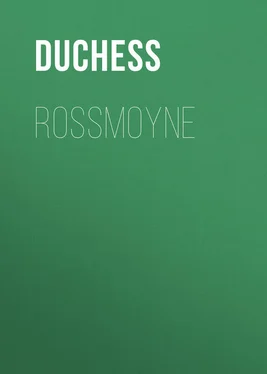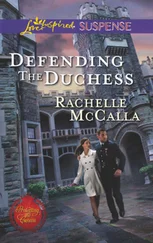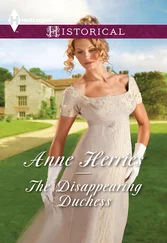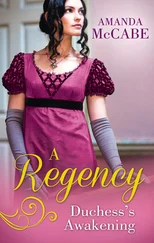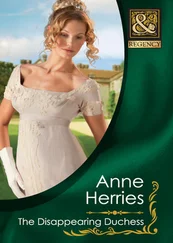Duchess - Rossmoyne
Здесь есть возможность читать онлайн «Duchess - Rossmoyne» — ознакомительный отрывок электронной книги совершенно бесплатно, а после прочтения отрывка купить полную версию. В некоторых случаях можно слушать аудио, скачать через торрент в формате fb2 и присутствует краткое содержание. Жанр: foreign_antique, foreign_prose, foreign_sf, на английском языке. Описание произведения, (предисловие) а так же отзывы посетителей доступны на портале библиотеки ЛибКат.
- Название:Rossmoyne
- Автор:
- Жанр:
- Год:неизвестен
- ISBN:нет данных
- Рейтинг книги:5 / 5. Голосов: 1
-
Избранное:Добавить в избранное
- Отзывы:
-
Ваша оценка:
- 100
- 1
- 2
- 3
- 4
- 5
Rossmoyne: краткое содержание, описание и аннотация
Предлагаем к чтению аннотацию, описание, краткое содержание или предисловие (зависит от того, что написал сам автор книги «Rossmoyne»). Если вы не нашли необходимую информацию о книге — напишите в комментариях, мы постараемся отыскать её.
Rossmoyne — читать онлайн ознакомительный отрывок
Ниже представлен текст книги, разбитый по страницам. Система сохранения места последней прочитанной страницы, позволяет с удобством читать онлайн бесплатно книгу «Rossmoyne», без необходимости каждый раз заново искать на чём Вы остановились. Поставьте закладку, и сможете в любой момент перейти на страницу, на которой закончили чтение.
Интервал:
Закладка:
"I feel sure, Reilly," says Miss Priscilla, slowly, "that you are not aware of the position your arms have taken. It is most unbecoming." Mrs. Reilly's arms dropped to her sides. "And as for this girl you speak of, I hear she is, as I say, very flighty."
"Don't believe a word of it, ma'am," says cook, with virtuous indignation. "Just because she holds up her head a bit, an' likes a ribbon or two, there's no holdin' the gossips down below," indicating the village by a backward jerk of her thumb. "She's as dacent a little sowl as you'd wish to see, an' has as nate a foot as there is in the county. The Cantys has all a character for purty feet."
"Pretty feet are all very well in their way," says Miss Priscilla, nodding her head. "But can she sew? and is she quiet and tractable, and – "
"Divil a thing she can't do, ma'am, axin' yer pardon," says Mrs. Reilly, rather losing herself in the excitement of the moment. "Just thry her, ma'am, an' if ye don't like her, an' if Miss Monica finds even one fault in her, just send her back to her mother. I can't say fairer nor that."
"No, indeed. Very well, Reilly, let her come up to me to-morrow; and see that her inside clothes are all right, and let her know she must never be out after dark."
"Yes, ma'am," says the triumphant Reilly, beating a hasty retreat.
Half an hour afterwards she encounters Monica upon the avenue.
"Why, where are you going, Mrs. Reilly?" asks Monica, seeing that cook is got up in all her war-paint, regardless of expense.
"To mass first, miss," says Mrs. Reilly.
"Where's that?" asks Monica, with foreign ignorance.
"Law! to the chapel, miss," says Reilly, with an amused smile.
"But it isn't Sunday?"
"No, miss. It's a saint's day – may they be good to us!" crossing herself. "It's different with you, miss, you see; but we poor folks, we must say our prayers when we can, or the Virgin will dhrop us out of her mind."
"Is your chapel pretty?" asks Monica, who has now been a week in the country, and through very weariness feels a mad desire to talk to somebody or anybody.
"Faix, it's lovely, miss, since Father Jerry took it in hand! There's the finest pictures ye ever saw on the walls, an' an altar it 'ud do ye good to look at."
"Would it? Then I'll go some day to see it," says Monica, smiling, not knowing that her aunts would as soon let her enter a pandemonium as a Roman Catholic chapel.
Dear old ladies! frightened by shadows, they have been bred in the belief that the Evil One dwells beneath the shade of the Romish Church, and will therefore surely die in it.
"Do, then, agra!" said Mrs. Reilly, who has, of course, like all the other servants, gone down before Monica: "it's proud we'd be to see ye there."
There is no thought of conversion in the woman's mind, you must remember, – merely a hospitable desire to let her know she will be welcome anywhere.
"By the same token, Miss Monica," says she, "there's something I was near forgettin' to tell ye."
"Yes!" says Monica.
"Ye're goin' to have me uncle's wife's niece for yer own maid, miss."
"Am I? I'm glad of that," says Monica, with a native courtesy. "Is she" – with some hesitation and a faint blush – "is she pretty, Reilly?"
"She's the purtiest girl ye ever set eyes on," says Mrs. Reilly, with enthusiasm.
"I'm glad of that ; I can't bear ugly people," says Monica.
"Faix, then, there's a bad time before ye wid the ould ladies," mutters Mrs. Reilly, sotto voce , gathering up her cloak and stepping onwards. She is a remarkably handsome woman herself, and so may safely deplore the want of beauty in her betters.
Monica, turning aside, steps on a high bank and looks down towards the village. Through the trees she can see the spire of the old cathedral rising heavenwards. Though Rossmoyne is but a village, it still can boast its cathedral, an ancient edifice, uncouth and unlovely, but yet one of the oldest places of worship in Ireland.
Most of my readers would no doubt laugh it to scorn, but we who belong to it reverence it, and point out with pride to passers by the few quaint marks and tokens that link it to a bygone age.
There is a nave, broad and deep, comprising more than a third of the whole building, with its old broken stone pavement, and high up, carven upon one of its walls the head of St. Faughnan, its patron saint, – a hideous saint, indeed, if he resembled that ancient carving. How often have I gazed upon his unlovely visage, and wondered in my childish fashion why the grace that comes from so divine an origin had not the power to render his servant's face more beautiful!
In these later years they have improved (?) and modernized the old structure. A stone pulpit, huge and clumsy, erected by subscription to the memory of some elderly inhabitant, stands like a misshapen blot before the altar rails; a window, too broad for its length, and generally out of proportion, throws too much light upon the dinginess within; the general character of the ugly old place has lost something, but assuredly gained nothing, by these innovations. It is hard to put "a piece of new cloth on an old garment" successfully.
The village itself stands upon a high hill; the ocean lies at its feet. From Moyne House one can see the shimmer of the great Atlantic as it dances beneath the sunbeams or lashes itself into furious foam under the touch of the north wind. The coastguard station, too, stands out, brilliant in its whitewash, a gleaming spot upon the landscape.
To the left of the station lies Ounahincha, – a long, deep line of sea-beach that would make its fortune as a bathing place under happier auspices and in some more appreciated clime.
Monica, looking down from her height, takes in all the beauties of the landscape that surround her, and lets the music of the melancholy ocean sink into her very soul.
Then she lets her eyes wander to the right, and rest with pardonable curiosity upon Coole Castle, where dwells the ogre of her house. Above Coole, and about two miles farther on, lies Aghyohillbeg, the residence of Madam O'Connor, that terrible descendant of one of Ireland's kings; whilst below, nestling among its firs and beeches, is Kilmore, where the Halfords – a merry tangle of boys and girls – may be seen at all hours.
Then there is the vicarage, where the rector lives with his family, which is large; and nearer to the village, the house that holds the curate and his family, which, of course, is larger. Besides which, Monica can just see from her vantage-ground the wooded slopes of Durrusbeg that have lately called young Ronayne master, – a distant cousin having died most unexpectedly and left him all his property.
Six months ago, Ulic Ronayne was spoken of by anxious matrons as a wild lad, with nothing to recommend him save his handsome face and some naughty stories attached to his name. Now he is pronounced charming, and the naughty stories, which indeed never had any foundation, are discovered to have been disgraceful fabrications. Marriageable daughters are kinder to him than words can say, and are allowed by the most cautious mothers to dance with him as often as they choose, and even to sit unlimited hours with him in secluded corners of conservatories unrebuked.
Truly, O Plutus! thou art a god indeed. Thou hast outlived thy greater brethren. Thy shrine is honored as of old!
After a last lingering glance at the distant ocean and the swelling woods that now in Merry June are making their grandest show, Monica jumps down from her bank again and goes slowly – singing as she goes – towards the river that runs at the end of Moyne.
Down by its banks Moyne actually touches the hated lands of Cooles, a slight boundary fence being all that divides one place from the other. The river rushes eagerly past both, on its way to the sea, murmuring merrily on its happy voyage, as though mocking at human weals and woes and petty quarrels.
Читать дальшеИнтервал:
Закладка:
Похожие книги на «Rossmoyne»
Представляем Вашему вниманию похожие книги на «Rossmoyne» списком для выбора. Мы отобрали схожую по названию и смыслу литературу в надежде предоставить читателям больше вариантов отыскать новые, интересные, ещё непрочитанные произведения.
Обсуждение, отзывы о книге «Rossmoyne» и просто собственные мнения читателей. Оставьте ваши комментарии, напишите, что Вы думаете о произведении, его смысле или главных героях. Укажите что конкретно понравилось, а что нет, и почему Вы так считаете.
